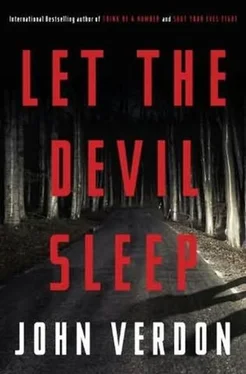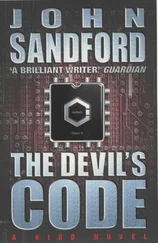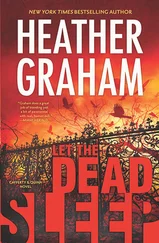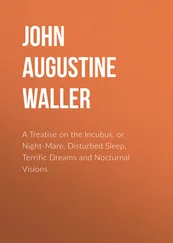As a final bit of reassurance, he moved the ramps around from the front to the back and reversed the car up onto them. He slid under the elevated rear end with his flashlight.
And there it was. A second black box, slightly larger than the first to accommodate a battery, was magnetized to the top of one of the rear bumper supports. The brand and general specs printed on the side of the device indicated it was from the same manufacturer and functionally equivalent to the one on Kim’s car, except for the power source.
The reason for the difference could have a number of explanations, but an obvious one was the different installation time required-at least half an hour for the wired version and virtually no time at all for the battery version. All things being equal, wired power was preferable-which suggested that whoever had installed them might have had more extended access to Kim’s car than to the Outback. Which, of course, brought Meese again to mind.
It was after midnight now, but sleep was out of the question. Gurney got a notepad and pen from his desk in the den and spent some cramped time under each car, copying down the information printed on the trackers so he could look up their performance parameters on the manufacturer’s website. GPS-based trackers all worked pretty much the same way, transmitting location coordinates that could be displayed as an icon on a map, viewable through appropriate software on virtually any computer with an Internet connection. The cost variability among the commercially available systems related to range, positional precision, software sophistication, and real-time accuracy. The technology had become, even at high levels of performance, fairly inexpensive-and therefore accessible to just about anyone who wanted it.
As he was pulling himself out from under the Miata for the second time that night, Gurney felt a vibration on his right hip, which startled him. He instinctively linked it to what he was doing, thinking it was somehow caused by the GPS device. A moment later he realized it was his phone, which he’d earlier set on vibrate to avoid waking anyone in the house if and when Hardwick got back to him.
As he scrambled to his feet, he pulled the phone from his pocket and saw Hardwick’s name on the ID screen.
“That was fast,” said Gurney.
“Fast? The hell are you talking about?”
“Fast answers to my questions.”
“What questions?”
“The ones I left on your voice mail.”
“I don’t check my voice mail in the middle of the night. That’s not why I’m calling you.”
Gurney had a sickening premonition. Or maybe he just knew the shifting tones of Hardwick’s voice well enough to recognize the sound of death. He waited for the announcement.
“Lila Sterne. Wife of the dentist. On the floor, inside their front door. Ice pick to the heart. That makes three current, plus the six oldies. Total of nine. No end in sight. Thought you’d want to know. Didn’t think anyone else at this point would bother to tell you.”
“Jesus Christ. Sunday, Monday, Tuesday. One every night.”
“So who’s next? Any bets on Wednesday’s ice pick?” Hardwick’s tone had shifted again-this time into the cynical register that went through Gurney like nails on a blackboard.
He understood the basic police need for detachment and black humor, but Hardwick always seemed to go beyond the necessary. That excess was the surface reason for Gurney’s reaction, but he knew there was something deeper, something in that tone that reminded him of his father.
“Thanks for the information, Jack.”
“Hey, what are friends for, right?”
Gurney went into the house and stood in the middle of the kitchen, trying to absorb all the data encountered in the past hour. He stood at the sideboard. With the kitchen lights on, he couldn’t see out the window. So he turned them off. The moon was just a fraction shy of full-a ball with one slightly flattened side. The moonlight was bright enough to give the grass a gray sheen and the trees at the edge of the pasture distinct black shadows. Gurney squinted and thought he could just make out the drooping branches of the hemlocks.
Then he thought he saw something moving. He held his breath, leaning over closer to the window. As he leaned forward on the top of the sideboard, he uttered a sharp yelp at a stabbing pain that shot up through his right wrist. He knew, even before he saw the damage, that he’d carelessly pressed his hand down on the razor-edged head of the arrow that had been lying there for a week, and it had sliced deeply into the flesh. By the time he got the light back on, blood was pooling in his upturned palm and dripping between his fingers onto the floor.
Facing Facts
Unable to sleep despite his total exhaustion, Gurney was sitting in semidarkness at the breakfast table, gazing out at the eastern ridge. Dawn was spreading like a sick pallor across the sky-a fair reflection of his state of mind.
Earlier, awakened by his cry of pain, Madeleine had driven him to the emergency room of Walnut Crossing’s minimal hospital.
She’d stayed with him through a four-hour process that could have been completed in less than an hour if three ambulances hadn’t arrived with the battered survivors of an unlikely accident in which a drunk driver had knocked down a billboard that acted as a ramp that launched a speeding motorcycle that landed on the hood of a car coming from the opposite direction. At least that was the story the EMS and ER people were telling and retelling each other outside the cubicle where Gurney had waited to be stitched and bandaged.
It had been his second visit to a hospital in less than a week, which in itself was troubling.
He’d been aware of Madeleine’s worried glances in his direction on their way there, in the waiting area, and on the way home, but they’d hardly spoken. When they had, it was mainly about how his hand felt or about the need to either get rid of the damn arrow or at least keep it in a safer place.
There were other things he could have spoken to her about, perhaps that he should have spoken about. The tracker he’d found on Kim’s car. The tracker on his own car. The third ice-pick murder. But he didn’t say a word about any of those things.
The reason for his silence, he told himself, was that telling her would only upset her. But a small voice in the back of his head told him otherwise-that his real reason was to avoid debate, to keep his options open. He told himself that the concealment would be temporary, therefore not a matter of truth, only of timing.
When they got home, half an hour before dawn, she went to bed with the same concerned look that had crossed her face so many times that night.
Too agitated to doze off, he sat at the table, wrestling with the implications of the things he didn’t want to talk about, especially the growing string of murders.
Of all the ways that killers end up being caught, few apply to killers who are intelligent and disciplined. And the Good Shepherd might be the smartest and most disciplined of all.
The only reasonable chance of identifying him would be through a massive coordinated law-enforcement effort. It would require reevaluating every piece of data from the original case. Overwhelming manpower. A mandate to start over with a clean slate. But in the current atmosphere, there was no way that was going to happen. Neither the FBI nor BCI would be able to step far enough outside the box. It was a box they’d built themselves, a box they’d been reinforcing for ten years.
So what was he supposed to do?
Ostracized and demonized, with a possible felony charge hanging over him and a PTSD label slapped on his forehead, what the hell could he do?
Читать дальше












